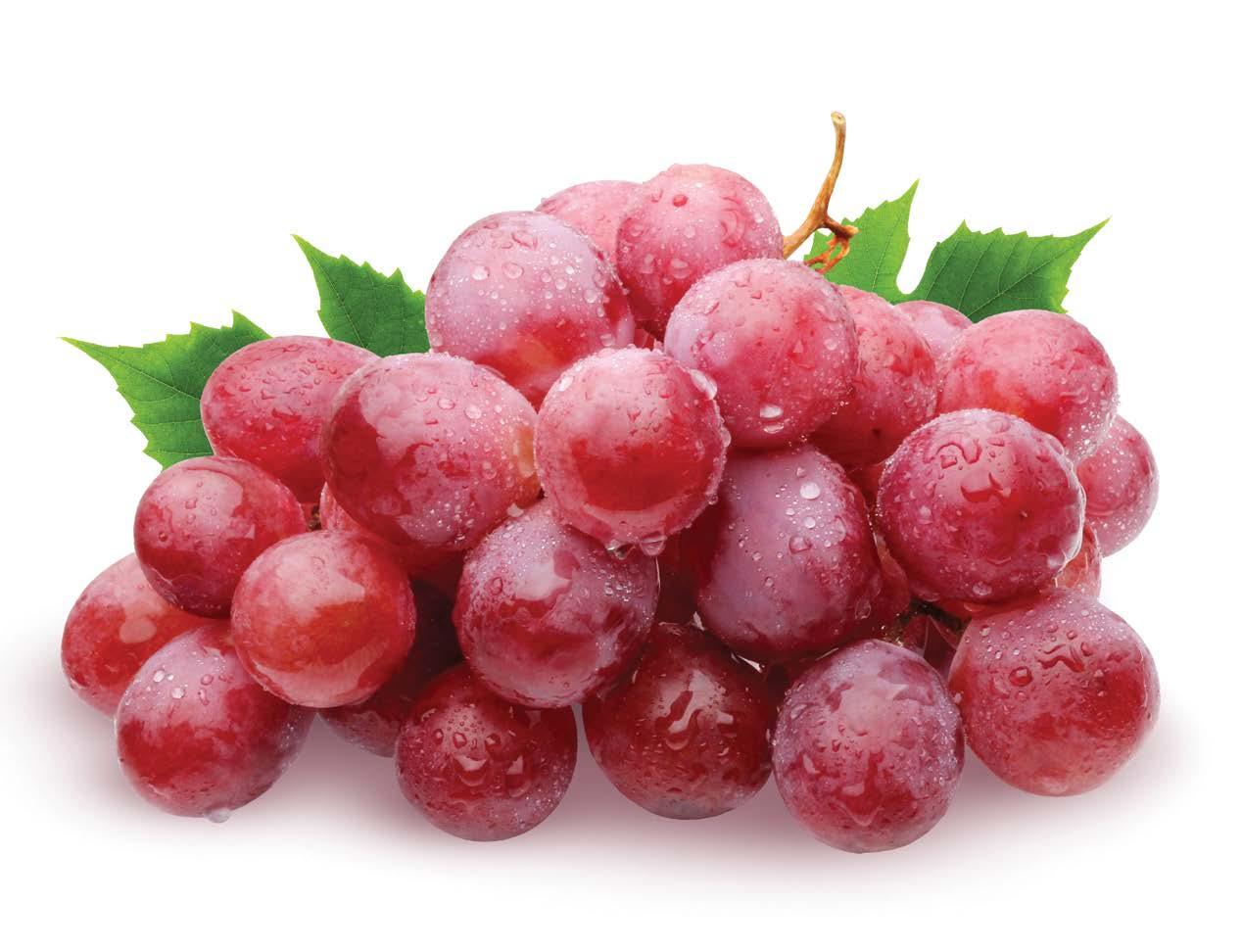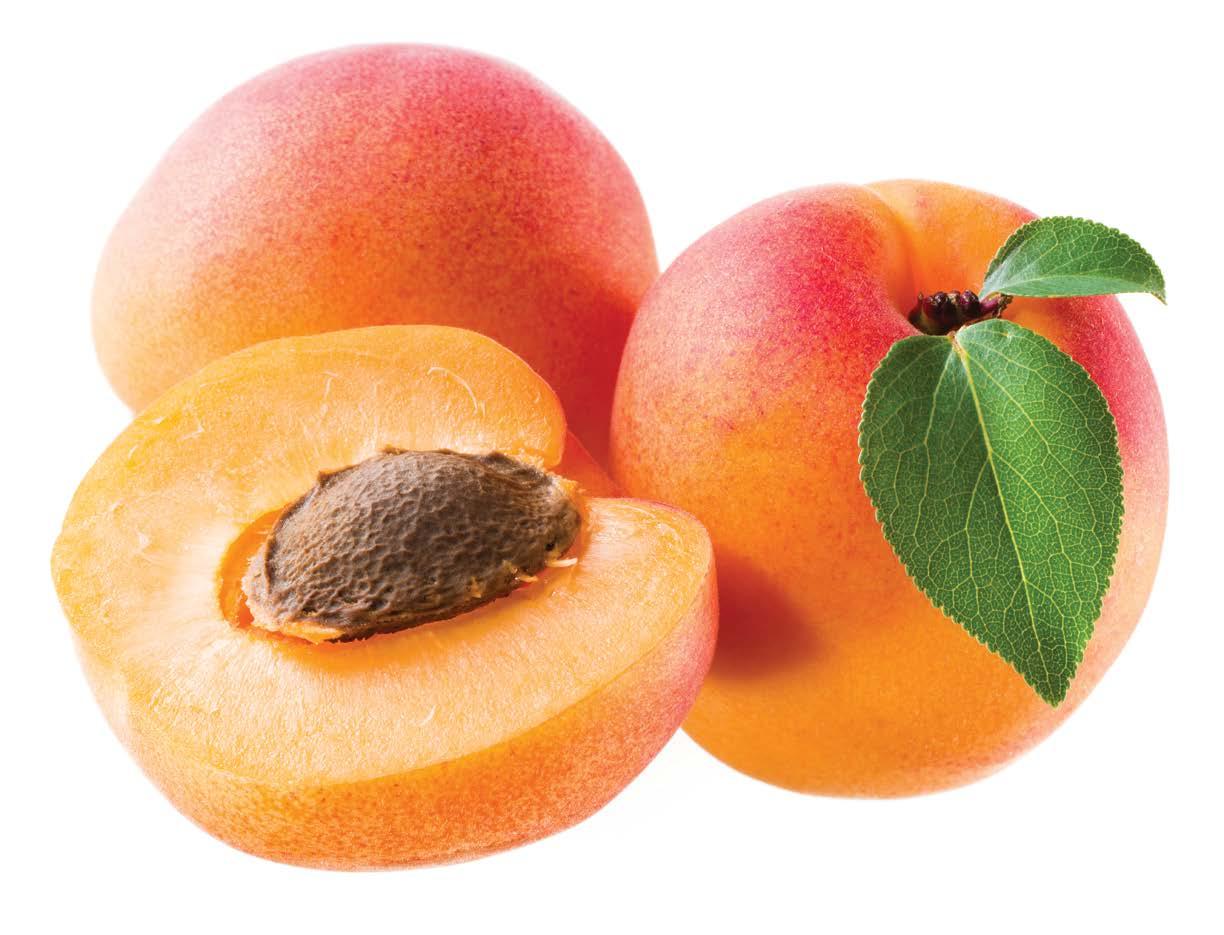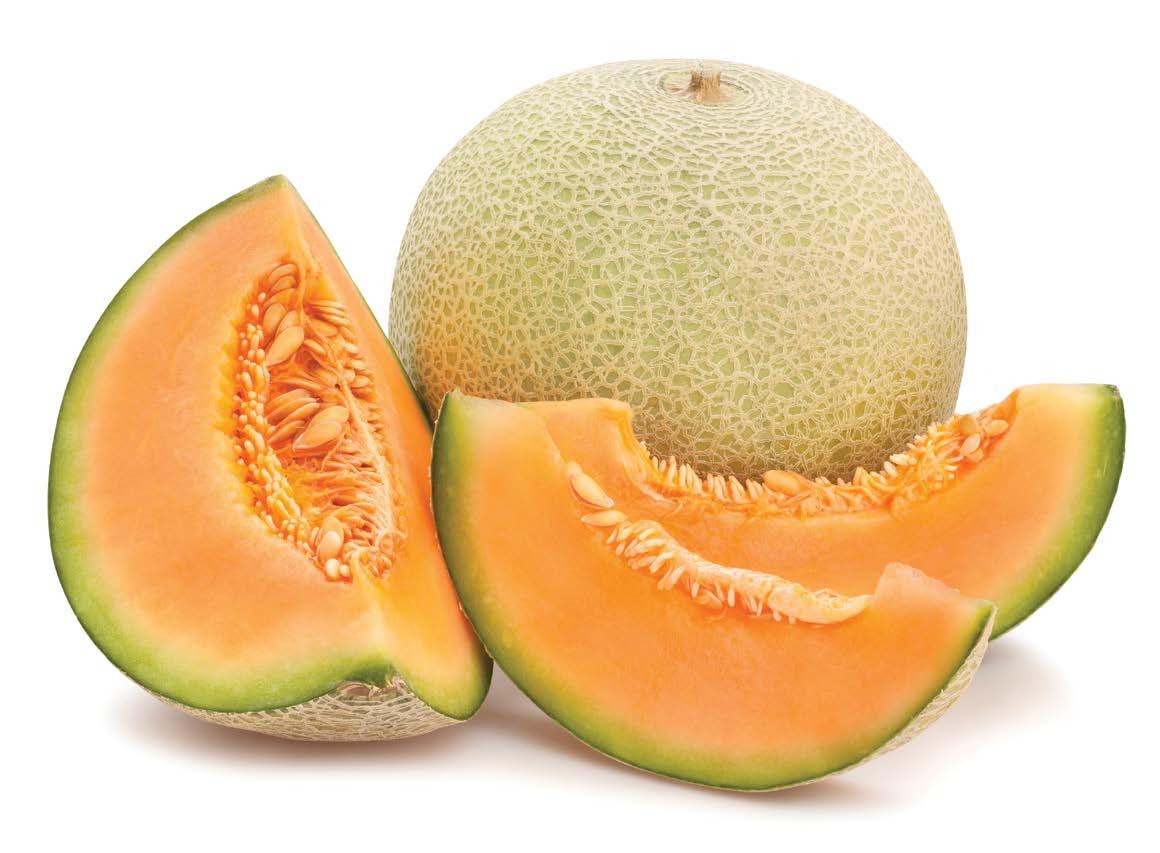The cantaloupe was first cultivated in the 1700s, in the Italian papal village of Cantalup.
Cantaloupe NUTRITION
Nutrition Facts
Cantaloupe is a good source of several nutrients, such as:
Amount per serving
Vitamin A protects the eyes, strengthens your immune system, and supports a healthy heart. Antioxidants are packed in these fruits, which protect the body from aging and disease. The fresher and riper the fruit, the more antioxidants it has. Vitamin C protects tissues supporting your entire body. It’s an antioxidant defending you from disease and the effects of aging.
WAYS TO E AT A N D P R E PA R E CAN TA LO U P E When perfectly ripe, these juicy fruits can transport your taste buds to a tropical bliss. Cantaloupe Infused Water: Place 4 cups of sliced cantaloupe in a pitcher. Add 2 quarts of water. Try sparkling water for more fizz (If you do this, use 1 quart to infuse and add a second quart right before serving,). Refrigerate 2-4 hours to allow the cantaloupe to infuse. Serve. Water will keep refrigerated for up to 2 days.
Serving size
1 cup chopped cantaloupe
Calories
60.2
Total Fat 0.3g
0%
Saturated Fat 0.1g
0%
Polyunsaturated Fat 0.1g Monounsaturated Fat 0g Cholesterol 0g Sodium 28.3mg Potassium 473mg
0% 1% 14%
Total Carbohydrate 15.6g
5%
Dietary Fiber 1.6g
6%
Sugar 13.9g Protein 1.5g
3%
Vitamin A
120%
Vitamin C
108%
Calcium
2%
Iron
2%
Vitamin D
0%
Vitamin B6
6%
Magnesium
5%
*The % Daily Value (DV) tells you how much a nutrient in a serving of food contributes to a daily diet. 2000 calories a day is used for general nutrition advice.
Roasted Cantaloupe: Preheat the oven to 400°F. Line a baking sheet with parchment paper. Cut into small cubes. Lightly toss cantaloupe with sugar for extra sweetness. Roast until the fruit shrinks and has started to brown, about 20 minutes. Cool completely and serve over oatmeal, yogurt, ice cream, even with parmesan cheese.
Fruit & Vegetables: Facts, Nutrition and Recipes
11









































